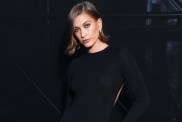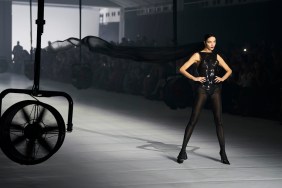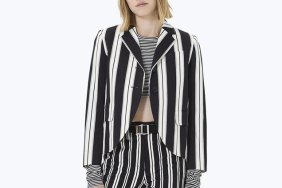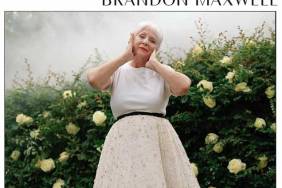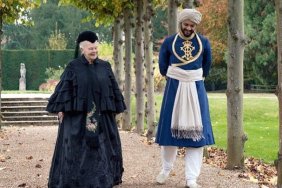Born in 1947 as David Jones in Brixton, London, David Bowie’s parents married shortly after he was born. Bowie was a teenager attending Bromley Technical High School when he got into a fight over a girl with his friend, George Underwood. Underwood, who was wearing a ring, caused permanent damage to Bowie’s eye. He spent nearly a year going through a series of surgeries to repair the damage and prevent permanent blindness. His left eye is permantly damaged with his pupil dilated giving the appearance of being a different colour than his right. This gave David Bowie his trademark look of his right eye appearing blue and the left brown.

His first band in 1962, The Konrads, was first influenced by Blues, Elvis-sounding music and British pop styles. Bowie was using the name Davie Jones. After a lot of confusion with Davy Jones from The Monkees, 1966 he decided to change his stage name to David Bowie. This was after the Alamo hero Jim Bowie and his famous Bowie knife.
Bowie’s fashion style was fitted suits and ties, very clean cut and typical of the era. The thing that made him stand out (and showed a glimpse of the future) was his unique red hair.

In 1969 Angie Barnett, 19, met and fell in love with David Bowie. A year later they married and had a son, Duncan, who was known as Zowie Bowie in his youth but now goes by the name Duncan Jones. Angie had a huge influence upon Bowie’s early career, keeping him surrounded by characters and an environment that allowed him to fully express his eccentricities into stage personas.

Angie hung out in London’s ‘In’ crowd and attracted extreme friends and influenced styles. During this time, Bowie devolved many stage personalities such as Hunky Dory, Ziggy Stardust, Aladdin Sane and Thin White Duke. Tony DeFries, his manager, spent years cultivating an image of glamour and excess that created a look of success before Bowie topped the charts.

DeFries belief was that Bowie had to be treated as a star to become a star. This led to expensive and elaborate stage shows that, by the end of his Diamond Dogs tour, amounted to pure excess on stage. This did build a strong fan base and began the influence of the Glam Rock phase of the 1970’s.

Then Angie decided a bold publicity move. Bowie felt there was a dirty job to do that required a lot of courage, and that he was just the man to do it. He was the first rock star to proclaim publicly he was bisexual. He posed on his album cover, ‘The man who sold the world’ in a satin dress fitted throughout the bodice, cut down to his navel, draping to below the knee stopping at his calves. Bowie had long flowing hair with curls and was draped over a chaise lounge, evoking a strong feminine feel yet keeping his face make-up free, which showed him to be every bit a man.

However, a less controversial cover was changed for the American market. Angie and Bowie were an androgenic couple. They often looked alike when going out, with Bowie wearing fitted jumpsuits with platform heels and make-up. The idea was to look more like an alien character rather than a woman, shaking up the conventional stereotypes of what men and women should wear.

On Bowie’s first visit to New York, he met Andy Wharhol and became inspired by a group of actors from The Factory. They had multi colored hair that they dyed themselves with magic markers, and wore outrageous stage outfits from the Andy Wharhol play ‘Pork’ on the street. This included crochet dresses with tights, large floppy hats, vests with fringe and fur. Men wore dresses and nail polish during the day, without trying to downplay there masculinity. This was all unheard of before the 1960’s in America.

This inspired Bowie to cut off his long curly hair and move away from singing folk songs. The New York underground music scene began to influence Bowie as well. He found the Velvet Underground to be important because it was a mixture of Rock and Roll and the Avant-garde. This is when he met Lou Reed and Iggy Pop. He felt they represented the wild side of America and he wanted to bring that back to England. Bowie was very passionate about America and American music; he thought that it embodied a movement they should have in England. Bowie didn’t know if it existed or not in England at the time so he was borrowing heavy from American influence.

Being filtered through the British system, Ziggy Stardust was born in 1972. This was a character that Bowie had been working on for a long time through different personas. It was sort of an alien being, the stranger we feel we are inside. Bowie had been experimenting with lots of looks, but none clicked. The android-like quality and prettiness of Ziggy made people want to touch him and be like him. The fashion and haircut played a huge role. He brought a sense of Kabuki theatre and mime, which he studied in his youth, to the stage.

Wearing elaborate make-up, shocking red spiked hair, feather boas, fitted jumpsuits with heels, long flowing tops and other gender-bending items was effective. Britain hadn’t seen such a phenomena for years, and mass following ensued. Bowie has always believed he’s a character when he’s on stage, fully engaged in his part. He wanted to escape completely from the place he was from and embrace an alternate reality.

The film ‘2001 Space Odyssey’ by Stanley Kubrick had a profound influence on Bowie’s career in the 1970’s. He related to the sense isolation. Coming from suburbia, Bowie had the impression that nothing really belonged to him, and that he was lost in a wasteland, exhausted by the blandness. This created a need to get out and put down some roots and redefine who he was. Previous records before ‘Space Oddity’ did very poorly. Ziggy first broke through in England and rose to the top of the charts, while in America he made little impact.

Bowie retired Ziggy at height of his fame and along with it, Glam Rock. This was when stars such as Gary Glitter, The Rolling Stones, Alice Copper and many others were topping the charts. This is at the time when Kiss appeared with elaborate stage make up.

Part 2 coming soon…


